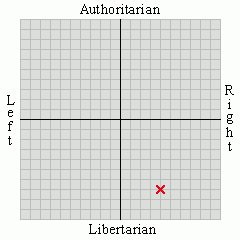Men at Work's number one hit Down Under reproduced a "substantial part" of the children's folk tune Kookaburra Sits In the Old Gum Tree, infringing copyright in the song, a Federal Court judge found today.Oooh, sounds serious. How much of Kookaburra did they pinch? Ah, not that much apparently.
Justice Peter Jacobson handed down his judgment in a Sydney court today and said the famous flute riff from the Aussie band's smash hit Down Under was unmistakably the same as Australian folk tune Kookaburra Sits in the Old Gum Tree.Where to begin? With a /facepalm obviously. Is that it? The fucking flute riff? Is that seriously it? So what's that in musical terms?
Singer/songwriter Hay does not deny that the flautist, Greg Ham, used two bars of Kookaburra...Two bars? Doesn't sound exactly substantial to me.
...but he says it was a musical accident which ended up on the recording of the song.Let's come back to that. Two bars is a 'substantial part' is it? Or isn't it (my emphasis)?
After a hearing in the Federal Court last year, Justice Peter Johnson delivered judgment today.What the fuck? It is a substantial part but it's not a substantial part? Okay, Kookaburra may be shorter and so two bars is a greater part of the song than it is of Down Under, but it's still just two bars from what was already at that time a pretty old song. One that could easily have earwormed it's way into the head of the Down Under flautist who then used it in all innocence. In his mind it was probably just a bunch of notes that sounded good and suited the song, and he might well have reached that without actual conscious thought. As per the quote above, the song writer feels it was a 'musical accident'.
"I have come to the view that the 1979 recording and the 1981 recording of Down Under infringe Larrikin's copyright in Kookaburra because both of those recordings reproduce a substantial part of Kookaburra," he said.
"I am also of the view that Larrikin is entitled to recover damages ... for the infringements.
"Nevertheless, I would emphasise that the findings I have made do not amount to a finding that the flute riff is a substantial part of Down Under or that it is the "hook" of the song.
"It is indeed true, that Greg Ham, (not a writer of the song) unconsciously referenced two bars of Kookaburra on the flute, during live shows after he joined the band in 1979, and it did end up in the Men At Work recording,'' Hay said in a statement today.This seemed somehow familiar, and it didn't take long before I remembered a short story by Spider Robinson called Melancholy Elephants.
"It was inadvertent, naive, unconscious, and by the time Men At Work recorded the song, it had become unrecognisable."
Go read it if you haven't before, but since Spider Robinson makes it available under a Creative Commons licence I'll just quote the bit I was thinking of.
"There are eighty-eight notes. One hundred and seventy-six, if your ear is good enough to pick out quarter tones. Add in rests and so forth, different time signatures. Pick a figure for maximum number of notes a melody can contain. I do not know the figure for the maximum possible number of melodies--too many variables - but I am sure it is quite high.The very same point: music heard as a child might come back into a musician's head many years later without being accompanied by a memory of the source, besides which there are only a limited number of notes and a limited number of ways they can be combined. As with the proverbial infinite number of monkeys random - and completely innocent - repetition is inevitable given time.
"I am certain that is not infinity.
"For one thing, a great many of those possible arrays of eighty-eight notes will not be perceived as music, as melody, by the human ear. Perhaps more than half. They will not be hummable, whistleable, listenable--some will be actively unpleasant to hear. Another large fraction will be so similar to each other as to be effectively identical: if you change three notes of the Moonlight Sonata, you have not created something new.
...
"My husband wrote a song for me, on the occasion of our fortieth wedding anniversary. It was our love in music, unique and special and intimate, the most beautiful melody I ever heard in my life. It made him so happy to have written it. Of his last ten compositions he had burned five for being derivative, and the others had all failed copyright clearance. But this was fresh, special--he joked that my love for him had inspired him. The next day he submitted it for clearance, and learned that it had been a popular air during his early childhood, and had already been unsuccessfully submitted fourteen times since its original registration. A week later he burned all his manuscripts and working tapes and killed himself."
On top of all that can you really claim copyright infringement when two things are so dissimilar? You'd have to be on something pretty fucking evil as well as mind bending to confuse Down Under and Kookaburra, and as I've argued before if there's no danger of confusing two things, whether they're songs, books, paintings, logos, whatever, there's no reason to start screaming for a lawyer.
I'm fine with company logos being sufficiently different for consumers with half a brain to tell them apart, I'm fine with creators of original work being credited for it indefinitely, I'm okay with inventors having a fair chance to get their idea to market and I'm okay with both earning a residual income from their work for a reasonable time. But stifling anything because it's a tiny little bit similar or expecting to be paid a fortune by someone who independently came up with an idea you've sat on and done nothing with for years, or to still be earning residual income 5 fucking decades on is taking the piss. The whole fucking IP thing has got badly out of hand, and the rate things are going I can imagine some cuntweaselly lawyer acting on behalf of a well known California based computer manufacturer sparking off a court case over this.On top of that it's pretty clear that in spite of both the amount of time it's been since Down Under became a hit and the amount of airplay it's had since then the copyright holder, who only bought the copyright in 1990, needed to have this copyright infringement fucking pointed out by a fucking TV show.
[Larrikin Music] claims it had won a tender for the copyright for Kookaburra from the South Australian Public Trustee in 1990, after [its author Marion Sinclair] died.So what we have here is that the copyright of a song written in 1932 by someone who died in 1988 was bought in 1990 by a record company. But part of the tune to that song was added as a fragment to a song recorded in 1979, quite possibly unconsciously, which went on to become a huge international hit. Yet in the nine years before the she died Marion Sinclair seemingly did precisely nothing about this supposed infringement of her copyright, as did Larrikin Music from the time it bought the copyright in 1990 right up to the similarity being mentioned on a TV music quiz 17 years or so later.*
Legal action was launched by Larrikin's managing director, Norman Lurie, in 2007 after the television show Spicks And Specks raised the alleged similarities.
Fuck me gently with a busted banjo, copyright law really is in bad need of reform.
* While I was surfing for stuff for this post I came across Kookaburra's Wikipedia entry, which mentions that it's sung to the same tune as a Welsh folk song called Wele ti'n eistedd aderyn du?. Who used the tune first, Marion Sinclair or the Welsh, isn't mentioned but presumably either Larrikin gets to sue Wales or Wales will get to sue Larrikin.




















2 comments:
"...presumably either Larrikin gets to sue Wales or Wales will get to sue Larrikin."
Maybe that the way the world ends. Not with a bang, or a whimper, but with everybody on the planet suing each other.
I think I prefer the supervolcano exit, frankly.
Could be the end of civilisation, sure. But on the plus side there's good eating on a lawyer.
Post a Comment